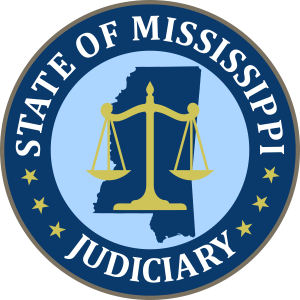When involved in a bus accident in Mississippi, victims often face severe physical, emotional, and financial hardships. While compensatory damages cover medical expenses, lost wages, and pain and suffering, punitive damages serve a different purpose. These damages are intended to punish the wrongdoer and deter similar conduct in the future. Understanding whether punitive damages are available in Mississippi bus accident cases requires a thorough examination of state laws, legal standards, and relevant case precedents.
Brad Morris
Attorney




The Nature of Punitive Damages
Punitive damages are distinct from compensatory damages, which are designed to make the victim whole by covering the costs directly associated with the injury. In contrast, punitive damages are awarded to penalize the defendant for particularly egregious behavior and to act as a deterrent against such conduct. In Mississippi, punitive damages are not automatically available in every bus accident case; instead, they are reserved for situations where the defendant’s actions were especially reckless, malicious, or grossly negligent.
Legal Standards for Punitive Damages in Mississippi
In Mississippi, the criteria for awarding punitive damages are stringent. The plaintiff must demonstrate by clear and convincing evidence that the defendant acted with actual malice, gross negligence, or committed willful misconduct. This high burden of proof is intended to ensure that punitive damages are only awarded in cases involving particularly reprehensible behavior. Mississippi law stipulates that punitive damages are not available in cases of mere negligence. The conduct must go beyond carelessness or inadvertence, rising to a level of conscious disregard for the safety and rights of others.
Applying the Standards in Bus Accident Cases
Bus accidents can result from various factors, including driver error, mechanical failure, and poor road conditions. For punitive damages to be applicable, the plaintiff must show that the accident resulted from more than ordinary negligence. For instance, if a bus company knowingly hired an unqualified driver, or if a driver was operating the vehicle under the influence of alcohol or drugs, such conduct could potentially meet the threshold for punitive damages. Similarly, if a bus company failed to maintain its vehicles despite knowing the risks of mechanical failure, it could be deemed grossly negligent.
Proving Gross Negligence or Malice
Proving gross negligence or malice involves gathering substantial evidence. This might include records of previous safety violations, internal company communications showing awareness of the risks, or eyewitness testimony about the defendant’s conduct. In some cases, witnesses may be called upon to explain the severity of the defendant’s actions and their deviation from accepted safety standards. The plaintiff’s legal team must meticulously document these elements to build a compelling case for punitive damages.
Case Precedents in Mississippi
Mississippi courts have addressed punitive damages in various contexts, providing guidance on their applicability. In bus accident cases, past rulings can offer insights into how the courts interpret and apply the standards for punitive damages. Reviewing relevant case law helps attorneys understand the nuances of arguing for punitive damages and the type of evidence that tends to be persuasive. While every case is unique, precedents can highlight the kinds of egregious behaviors that have justified punitive damages in the past.
Challenges in Seeking Punitive Damages
Seeking punitive damages adds a layer of complexity to a bus accident case. The plaintiff must not only prove the basic elements of negligence but also meet the higher burden of demonstrating gross negligence or malice. This often requires extensive investigation and the gathering of substantial evidence. Additionally, defendants typically mount vigorous defenses against claims for punitive damages, knowing the significant financial implications. Plaintiffs must be prepared to counter these defenses effectively.
Steps of a Personal Injury Case Will My Case Go To Trial?Related Videos
Impact on Settlement Negotiations
The potential for punitive damages can significantly impact settlement negotiations. Defendants facing the possibility of a large punitive damages award may be more inclined to settle out of court to avoid the risk of a substantial financial penalty. For plaintiffs, this leverage can result in more favorable settlement terms. However, it is crucial to approach negotiations with a clear understanding of the strength of the punitive damages claim and the likelihood of success in court.
The Role of Legal Representation
Navigating a bus accident case involving potential punitive damages requires legal representation. Attorneys experienced in personal injury law can assess the viability of a punitive damages claim, gather and present compelling evidence, and advocate effectively on behalf of their clients. They can also navigate the complex legal landscape, including the specific procedural requirements for seeking punitive damages in Mississippi.
Statutory Limitations on Punitive Damages
Mississippi law imposes certain statutory limitations on punitive damages. These include caps on the amount that can be awarded, which are determined based on the defendant’s net worth. Understanding these caps is essential for both plaintiffs and defendants, as they influence the potential financial outcomes of the case. Attorneys must be well-versed in these statutory provisions to accurately advise their clients and strategically plan their cases.
Fight for the Justice You Deserve — Contact Us Today
If you or a loved one has been involved in a bus accident in Mississippi, it is crucial to seek legal advice to understand your rights and options. The Brad Morris Law Firm, PLLC, is dedicated to advocating for victims of personal injury and ensuring they receive the compensation they deserve. Our experienced team will thoroughly investigate your case, gather compelling evidence, and pursue all possible avenues for recovery, including punitive damages where applicable. Contact us today to schedule a consultation and take the first step towards justice and accountability. Your well-being and recovery are our top priorities.

